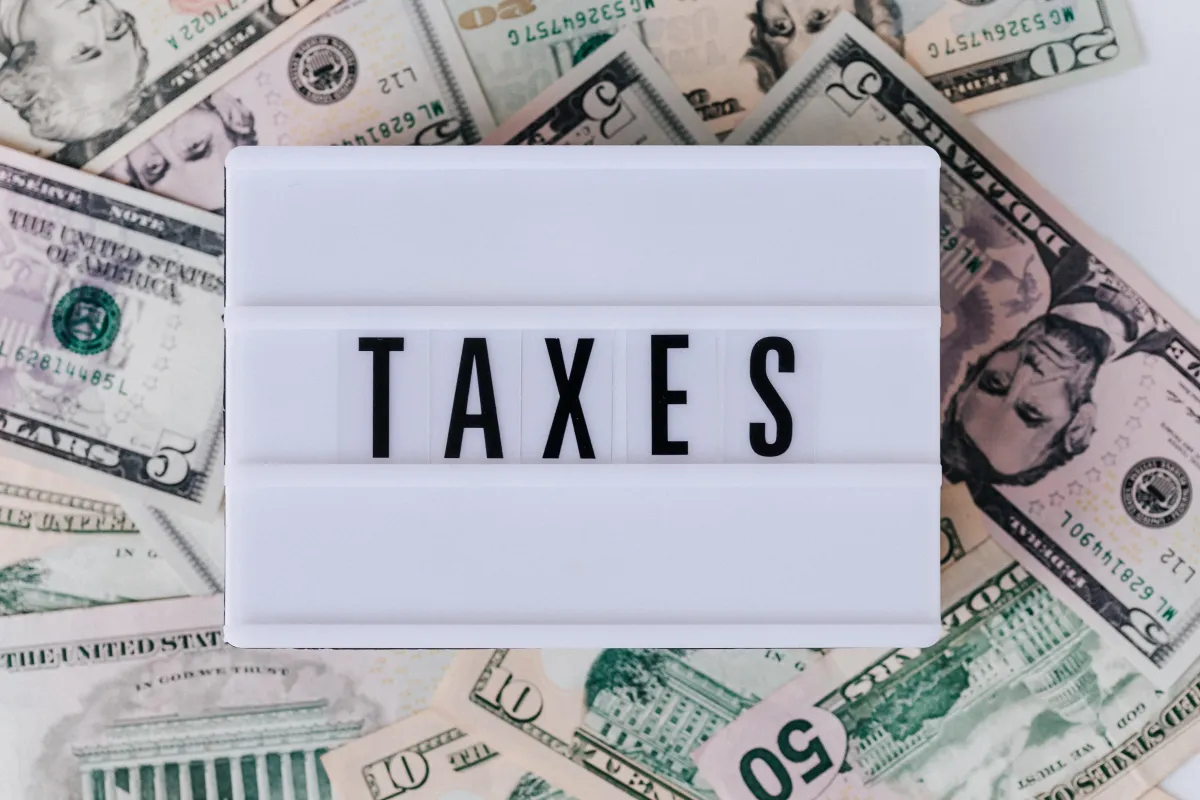
Maximizing Tax Savings for Business Owners: Proven Strategies

Introduction
Taxes can be a confusing and intimidating topic for business owners, and it is important to understand the basics of taxation in order to maximize tax savings. The government taxes businesses as well as individuals on their income, so it is important for every business owner to keep up with changing tax laws in order to ensure compliance. Moreover, understanding the various strategies available for reducing one’s overall tax liability can have a significant impact on the bottom line of any company or individual taxpayer. This blog post will discuss proven strategies that can help business owners save on taxes while staying compliant with applicable laws.
Tips for Reducing Business Tax Liability
Maximizing Retirement Plan Contributions: Contributing to an employer-sponsored retirement plan or IRA can be a great way for business owners to reduce their taxable income. By contributing the maximum amount
allowed, business owners can potentially save thousands of dollars in taxes each year. Furthermore, these contributions are often tax deductible and may offer other benefits such as reduced Social Security taxes or enhanced employee benefits packages.
Claiming Deductions and Tax Credits: Businesses have access to numerous deductions and credits that can help lower their overall tax liability. For example, businesses may be able to take advantage of tax deductions for certain expenses such as health insurance premiums or vehicle costs related to conducting business activities. Additionally, there are various federal and state credits available that can provide further savings on
taxes owed. It is important for business owners to research which deductions and credits they qualify for in order to maximize their potential savings from this strategy.
Deferring Income: Deferring some forms of income until the next fiscal year can be another effective strategy when it comes reducing one’s tax burden. This allows taxpayers more time before having pay taxes on the deferred income—which could result in significant savings if financial circumstances change during that period (e. g., the taxpayer moves into a higher bracket). However, it is important for taxpayers who choose this route ensure that they remain compliant with all applicable laws pertaining to deferred income taxation rules so as not incur any penalties or interest charges from the IRS down the road.
Financial Strategies for Long-term Tax Savings
Creating a Tax Planning Calendar: A tax planning calendar can be an invaluable tool for business owners when it comes to staying organized and up-to-date on their taxes. By creating a calendar that outlines key deadlines, such as quarterly estimated payments or filing dates, business owners can ensure that they are always prepared and compliant with applicable laws. Moreover, this type of calendar allows taxpayers to plan ahead so that they can proactively make any necessary adjustments in order to optimize their long-term tax savings.
Utilizing Tax Loss Harvesting: Businesses may take advantage of “tax loss harvesting” which is essentially the process of incurring losses from investments in order to offset gains from other sources. For example, if a
taxpayer has sold an investment at a profit but also incurred capital losses elsewhere in the same year, those losses could help reduce the amount of taxable income derived from the profitable transaction—thus optimizing overall tax savings. This strategy should only be pursued with guidance from qualified professionals who understand all applicable laws surrounding taxation and investing.
Optimizing Business Structure: The structure under which businesses operate (i. e., LLCs vs corporations) can have significant impacts on taxation levels due to differences in available deductions and credits based
on entity type(s). Furthermore, certain entities may offer more flexibility when it comes to how profits are distributed among members/owners—which could yield additional benefits come tax season depending upon individual circumstances like marital status or number dependents claimed etc.. Therefore, conducting
proper research into various entity types before launching one’s business is highly recommended for obtaining maximum long-term tax savings potential down the road.
Minimizing Self-Employment Taxes
Organizing Business Expenses: Keeping accurate and up-to-date records of all business expenses is an important step for minimizing self-employment taxes. This includes tracking any purchases made, mileage
driven related to the business, and other costs associated with operating a small business. Doing so allows taxpayers to easily identify which expenditures are eligible deductions when filing taxes come April 15th; thereby reducing their taxable income levels and ultimately lowering overall tax liability.
Understanding Deductible Business Expenses: It is essential that taxpayers understand which types of expenses can be deducted from their income in order to maximize their potential savings on self-employment taxes. Generally speaking, any expense directly related to conducting one’s trade or profession (e. g., office supplies, travel costs etc.) can be deducted as long as they are ordinary and necessary for the operation of said business activity. Additionally, some health insurance premiums may also qualify as deductible expenses depending upon individual circumstances—so it is important to review IRS guidelines closely before claiming these types of deductions in order to avoid penalties or fines down the road.
Working with a Professional Tax Advisor: Ultimately, working with a qualified professional tax advisor can prove invaluable when it comes time for preparing one’s annual return—especially if attempting complex
strategies such as those discussed above in order minimize self-employment taxes owed each year. A seasoned CPA will have an intimate understanding of all applicable regulations pertaining taxation laws and be able leverage this knowledge into providing sound advice tailored specifically towards helping clients optimize potential savings while staying compliant with applicable laws at all times
Tips for Staying Compliant
In order to stay compliant with tax laws, it is important for business owners to keep up to date on changing regulations and policies. Staying informed of any new developments can help ensure that the correct information is being provided when filing taxes each year. Additionally, it is beneficial to familiarize oneself with the applicable local, state, and federal tax requirements in order to reduce potential mistakes or discrepancies when filing returns. Furthermore, all tax documents should be filed in a timely manner as late filings may result in hefty penalties from the IRS or other governing bodies.
Moreover, taking advantage of online resources such as Turbo Tax or H&R Block’s Tax Cut software can be helpful for ensuring accuracy while filling out forms and inputting figures into one’s return. These programs
typically offer step-by-step guidance throughout the entire process—which helps streamline data entry and minimize potential errors along the way. Finally, hiring a professional accountant or CPA often proves invaluable when preparing taxes due their expertise surrounding taxation matters; however this option
comes at an additional cost which some taxpayers may not want (or be able) to incur every year depending upon individual circumstances.
Conclusion
In conclusion, there are a variety of strategies available to business owners looking to minimize their self-employment taxes. From claiming deductions and tax credits to deferring income or optimizing one’s business structure, taxpayers have access to a number of tactics that can help them lower their overall liability come April 15th each year. Moreover, staying compliant with applicable laws is paramount in order for these strategies to be effective—thus it is essential that all relevant paperwork is filed on time while also maintaining accurate records of expenses and other financial data related to the trade or profession being conducted. Ultimately, by taking advantage of the various tips outlined above businesses may be able to reduce their taxable income levels significantly; thereby allowing them more flexibility when it comes managing cash flow and reinvesting into their operations for future growth.
Maximizing Tax Savings for Business Owners:
Proven Strategies

Introduction
Taxes can be a confusing and intimidating topic for business owners, and it is important to understand the basics of taxation in order to maximize tax savings. The government taxes businesses as well as individuals on their income, so it is important for every business owner to keep up with changing tax laws in order to ensure compliance. Moreover, understanding the various strategies available for reducing one’s overall tax liability can have a significant impact on the bottom line of any company or individual taxpayer. This blog post will discuss proven strategies that can help business owners save on taxes while staying compliant with applicable laws.
Tips for Reducing Business Tax Liability
Maximizing Retirement Plan Contributions: Contributing to an employer-sponsored retirement plan or IRA can be a great way for business owners to reduce their taxable income. By contributing the maximum amount
allowed, business owners can potentially save thousands of dollars in taxes each year. Furthermore, these contributions are often tax deductible and may offer other benefits such as reduced Social Security taxes or enhanced employee benefits packages.
Claiming Deductions and Tax Credits: Businesses have access to numerous deductions and credits that can help lower their overall tax liability. For example, businesses may be able to take advantage of tax deductions for certain expenses such as health insurance premiums or vehicle costs related to conducting business activities. Additionally, there are various federal and state credits available that can provide further savings on
taxes owed. It is important for business owners to research which deductions and credits they qualify for in order to maximize their potential savings from this strategy.
Deferring Income: Deferring some forms of income until the next fiscal year can be another effective strategy when it comes reducing one’s tax burden. This allows taxpayers more time before having pay taxes on the deferred income—which could result in significant savings if financial circumstances change during that period (e. g., the taxpayer moves into a higher bracket). However, it is important for taxpayers who choose this route ensure that they remain compliant with all applicable laws pertaining to deferred income taxation rules so as not incur any penalties or interest charges from the IRS down the road.
Financial Strategies for Long-term Tax Savings
Creating a Tax Planning Calendar: A tax planning calendar can be an invaluable tool for business owners when it comes to staying organized and up-to-date on their taxes. By creating a calendar that outlines key deadlines, such as quarterly estimated payments or filing dates, business owners can ensure that they are always prepared and compliant with applicable laws. Moreover, this type of calendar allows taxpayers to plan ahead so that they can proactively make any necessary adjustments in order to optimize their long-term tax savings.
Utilizing Tax Loss Harvesting: Businesses may take advantage of “tax loss harvesting” which is essentially the process of incurring losses from investments in order to offset gains from other sources. For example, if a
taxpayer has sold an investment at a profit but also incurred capital losses elsewhere in the same year, those losses could help reduce the amount of taxable income derived from the profitable transaction—thus optimizing overall tax savings. This strategy should only be pursued with guidance from qualified professionals who understand all applicable laws surrounding taxation and investing.
Optimizing Business Structure: The structure under which businesses operate (i. e., LLCs vs corporations) can have significant impacts on taxation levels due to differences in available deductions and credits based
on entity type(s). Furthermore, certain entities may offer more flexibility when it comes to how profits are distributed among members/owners—which could yield additional benefits come tax season depending upon individual circumstances like marital status or number dependents claimed etc.. Therefore, conducting
proper research into various entity types before launching one’s business is highly recommended for obtaining maximum long-term tax savings potential down the road.
Minimizing Self-Employment Taxes
Organizing Business Expenses: Keeping accurate and up-to-date records of all business expenses is an important step for minimizing self-employment taxes. This includes tracking any purchases made, mileage
driven related to the business, and other costs associated with operating a small business. Doing so allows taxpayers to easily identify which expenditures are eligible deductions when filing taxes come April 15th; thereby reducing their taxable income levels and ultimately lowering overall tax liability.
Understanding Deductible Business Expenses: It is essential that taxpayers understand which types of expenses can be deducted from their income in order to maximize their potential savings on self-employment taxes. Generally speaking, any expense directly related to conducting one’s trade or profession (e. g., office supplies, travel costs etc.) can be deducted as long as they are ordinary and necessary for the operation of said business activity. Additionally, some health insurance premiums may also qualify as deductible expenses depending upon individual circumstances—so it is important to review IRS guidelines closely before claiming these types of deductions in order to avoid penalties or fines down the road.
Working with a Professional Tax Advisor: Ultimately, working with a qualified professional tax advisor can prove invaluable when it comes time for preparing one’s annual return—especially if attempting complex
strategies such as those discussed above in order minimize self-employment taxes owed each year. A seasoned CPA will have an intimate understanding of all applicable regulations pertaining taxation laws and be able leverage this knowledge into providing sound advice tailored specifically towards helping clients optimize potential savings while staying compliant with applicable laws at all times
Tips for Staying Compliant
In order to stay compliant with tax laws, it is important for business owners to keep up to date on changing regulations and policies. Staying informed of any new developments can help ensure that the correct information is being provided when filing taxes each year. Additionally, it is beneficial to familiarize oneself with the applicable local, state, and federal tax requirements in order to reduce potential mistakes or discrepancies when filing returns. Furthermore, all tax documents should be filed in a timely manner as late filings may result in hefty penalties from the IRS or other governing bodies.
Moreover, taking advantage of online resources such as Turbo Tax or H&R Block’s Tax Cut software can be helpful for ensuring accuracy while filling out forms and inputting figures into one’s return. These programs
typically offer step-by-step guidance throughout the entire process—which helps streamline data entry and minimize potential errors along the way. Finally, hiring a professional accountant or CPA often proves invaluable when preparing taxes due their expertise surrounding taxation matters; however this option
comes at an additional cost which some taxpayers may not want (or be able) to incur every year depending upon individual circumstances.
Conclusion
In conclusion, there are a variety of strategies available to business owners looking to minimize their self-employment taxes. From claiming deductions and tax credits to deferring income or optimizing one’s business structure, taxpayers have access to a number of tactics that can help them lower their overall liability come April 15th each year. Moreover, staying compliant with applicable laws is paramount in order for these strategies to be effective—thus it is essential that all relevant paperwork is filed on time while also maintaining accurate records of expenses and other financial data related to the trade or profession being conducted. Ultimately, by taking advantage of the various tips outlined above businesses may be able to reduce their taxable income levels significantly; thereby allowing them more flexibility when it comes managing cash flow and reinvesting into their operations for future growth.




